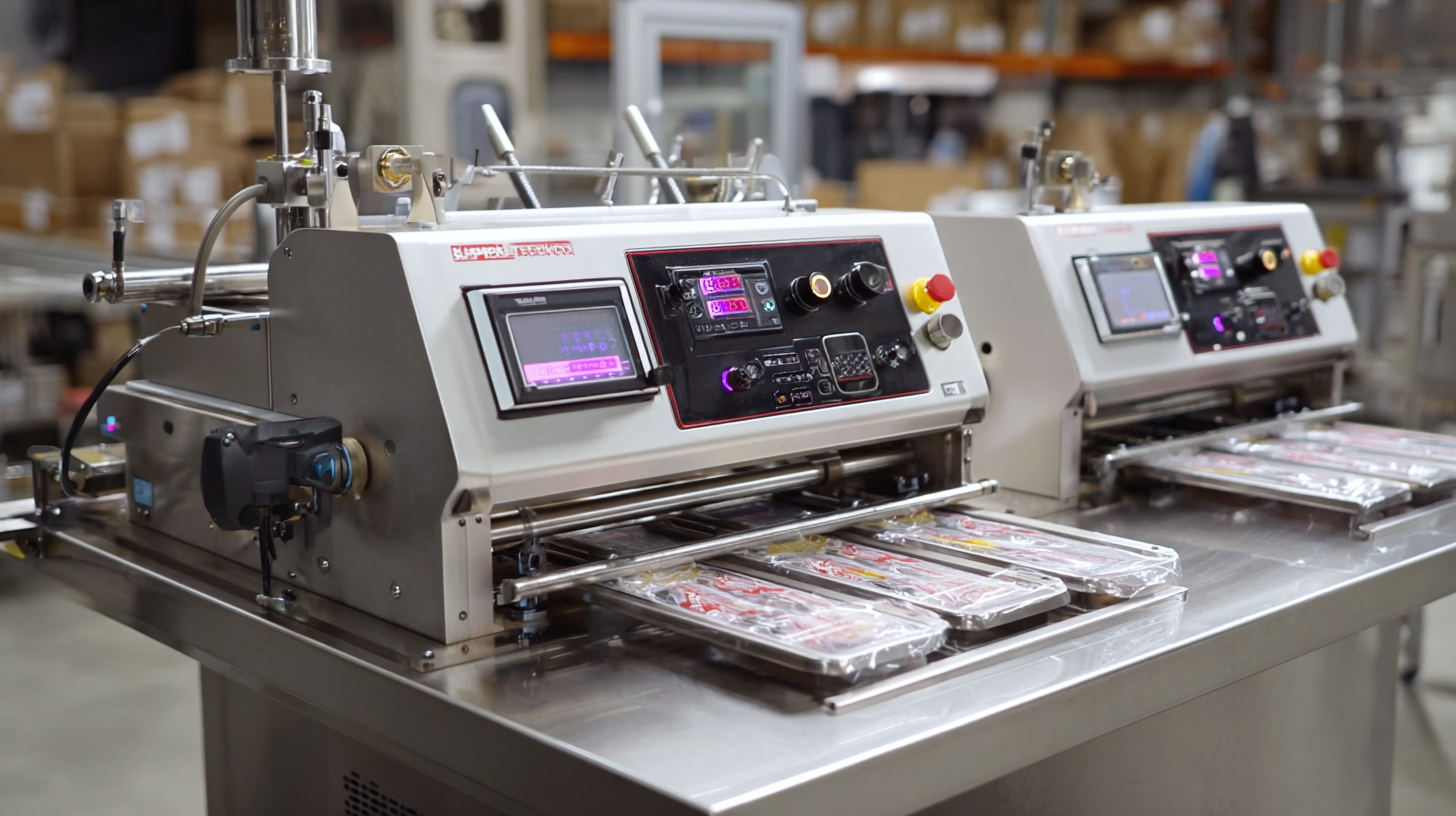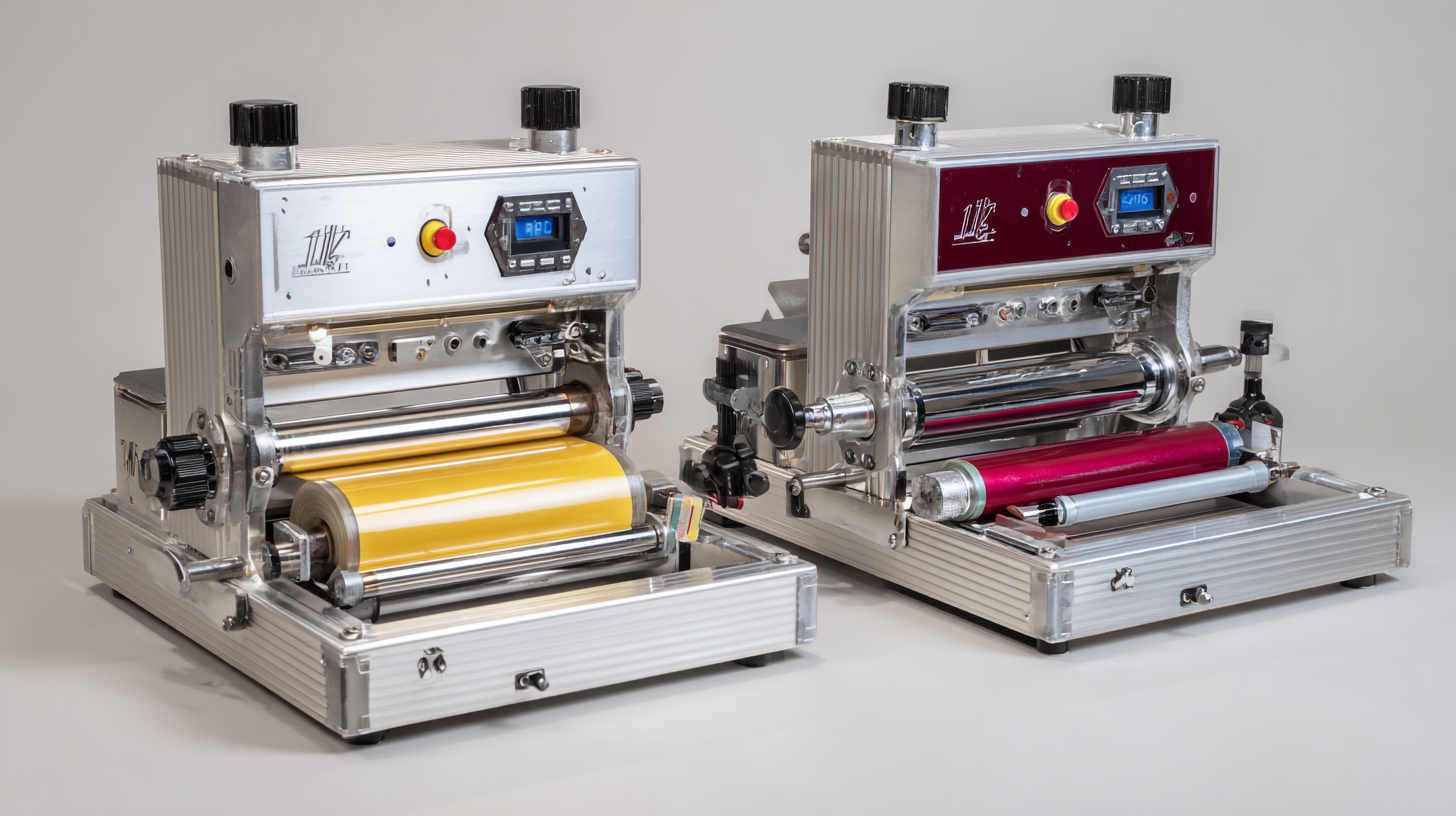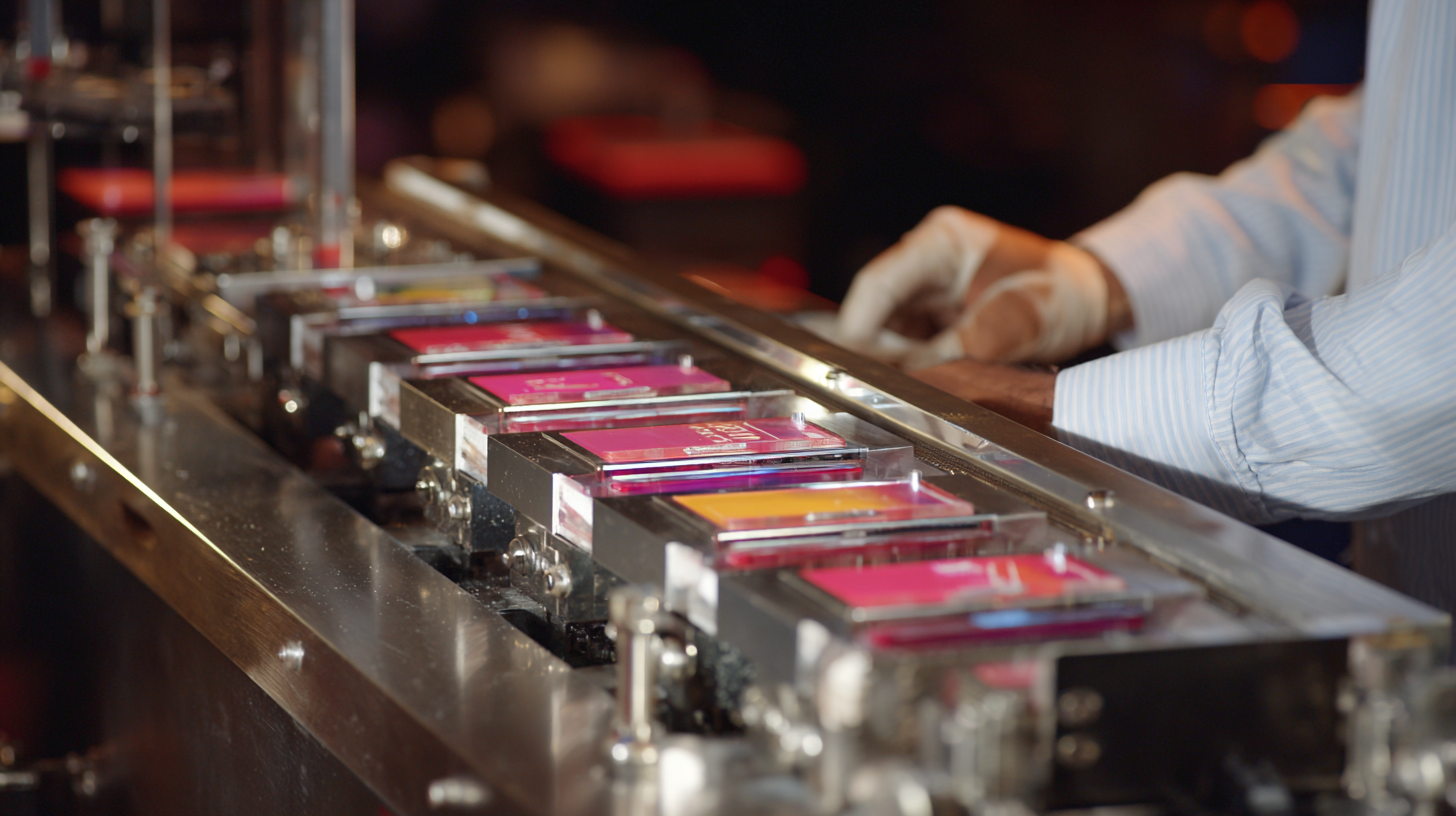Leave Your Message
Choosing the right heat sealing machine is crucial for businesses that rely on efficient packaging solutions. Whether you're in the food, pharmaceuticals, or manufacturing sector, the ideal heat sealing machine can significantly impact your production process. With a variety of options on the market, it can be challenging to determine which machine best fits your specific needs. Factors such as the type of materials you're sealing, production volume, and desired seal quality play a vital role in your decision-making process. This blog will guide you through the essential considerations to help you select the best heat sealing machine for your business, ensuring that you optimize your packaging operations and stay ahead of the competition. Emphasizing the need for tailored solutions, we'll explore the key features and functionalities that can make a significant difference in your workspace.

When it comes to selecting the right heat sealing machine for your business, understanding the various types available is crucial. Heat sealing machines can broadly be categorized into several types: impulse sealers, constant heat sealers, and vacuum sealers. Each type caters to different packaging needs and materials, ensuring that you can choose the machine that best fits your operational requirements.
Impulse sealers are ideal for low to medium-volume packaging operations, as they quickly generate heat only when the seal is activated, minimizing energy consumption. On the other hand, constant heat sealers maintain a consistent temperature for longer periods, making them suitable for high-volume tasks or thicker materials. Vacuum sealers, as the name suggests, remove air from the packaging, extending shelf life for perishable goods. Assessing the size of your business and the specific products you handle will help you decide which machine aligns with your packaging strategy.

When selecting the best heat sealing machine for your business needs, it's crucial to evaluate several key features that can significantly impact your production efficiency and product quality. Look for machines that offer versatility in sealing various materials, particularly for packaging applications that require different types of films, including flexible polymer-coated materials often used in vertical form-fill-seal (VFFS) processes. Understanding the frictional behavior of these materials can help ensure a more efficient sealing process that minimizes waste and operational downtime.

Tip: Consider a machine with adjustable temperature control and sealing time settings. This flexibility allows you to customize the sealing conditions for different materials, ensuring optimal performance. Additionally, assessing the thermal analysis of your chosen materials in conjunction with the sealing machine can help prevent issues such as overheating or insufficient seals.
Another important feature to evaluate is the energy efficiency of the machine. As energy storage technologies continue to integrate with renewable energy systems, investing in a heat sealing machine that utilizes energy-efficient components can contribute positively to your overall operational costs and sustainability efforts. This not only aids in reducing your carbon footprint but also prepares your business for future environmental policies and regulations.
Tip: Research machines that incorporate innovative designs aimed at minimizing energy consumption while maintaining performance, aligning with the industry's shift towards more sustainable practices.
When selecting a heat sealing machine for your business, it's essential to compare manual and automated options, as each has its own set of advantages and disadvantages. Manual heat sealing machines are often favored by smaller businesses or those with low-volume production needs. According to a 2021 industry report by MarketsandMarkets, manual machines can cost significantly less upfront—ranging from $200 to $1,500—making them an accessible choice for startups. Additionally, they require minimal maintenance and offer operators direct control over the sealing process, which can be beneficial for projects that demand precision.
On the other hand, automated heat sealing machines are designed for high-volume production environments. A study conducted by Grand View Research in 2022 indicated that the global automated packaging machinery market is expected to reach $60 billion by 2027, reflecting the growing demand for efficiency in packaging operations. These machines facilitate faster sealing speeds and reduce labor costs, as they can operate with minimal human intervention. However, the initial investment can be substantial, often ranging from $5,000 to $100,000, which may not be feasible for smaller businesses. Ultimately, the decision should align with the specific production goals and financial capabilities of your business.
When selecting a heat sealing machine that balances quality and budget, it's essential to assess both the initial purchase cost and the long-term operational expenses. While cheaper models may seem attractive, they often compromise on durability and efficiency. Therefore, consider investing in a mid-range sealer that offers reliable performance without breaking the bank. This approach ensures that you won't need frequent replacements or repairs, which can add up over time.
Additionally, examine the operational costs, including energy consumption and maintenance needs. A machine that consumes less power may be more expensive upfront but can save you money in the long run. Make sure to read reviews and user testimonials to gauge the reliability of different models, and don’t hesitate to reach out to manufacturers for detailed specifications. Ultimately, choosing a budget-friendly heat sealer involves careful consideration of both upfront costs and ongoing expenses to ensure it meets your business requirements effectively.
| Model | Type | Seal Width | Power Consumption | Price | Ideal Uses |
|---|---|---|---|---|---|
| Model A | Impulse Sealer | 12 inches | 600W | $150 | Packaging snacks |
| Model B | Continuous Band Sealer | 16 inches | 800W | $250 | Bulk food packaging |
| Model C | Foot Pedal Sealer | 8 inches | 300W | $120 | Small item sealing |
| Model D | Portable Sealer | 10 inches | 400W | $90 | Travel and fieldwork |
| Model E | Tabletop Sealer | 14 inches | 500W | $200 | Light to medium packaging |
As businesses increasingly prioritize sustainability, exploring eco-friendly alternatives in heat sealing technology has become essential. With the skin packaging market projected to grow significantly due to rising consumer demand for sustainable solutions, manufacturers are innovating to integrate eco-friendly practices into their production processes. These innovations not only reduce environmental impact but also enhance brand reputation and attract environmentally-conscious consumers.
Recent developments in sustainable packaging materials, such as compostable flexible packaging and natural plant fiber-based options, highlight the industry's shift toward greener choices. Companies are revolutionizing their offerings with solutions that reduce reliance on non-biodegradable materials. Additionally, smart technologies are being employed to enhance operational efficiency, aiding companies in achieving their sustainability goals in packaging. By investing in these eco-friendly alternatives, businesses can not only meet regulatory demands but also contribute to a circular economy, leading to long-term success and a positive impact on the planet.
